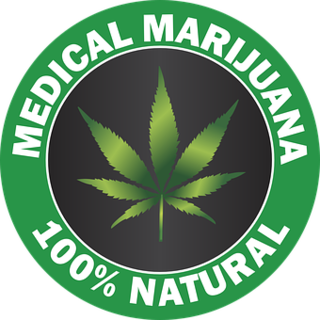Persuasion
Medical Marijuana and Employment Disqualification
Pre-employment drug testing may disqualify job applicants who use medical pot.
Posted August 7, 2019 Reviewed by Hara Estroff Marano

Marijuana is currently legal in 27 states. Many more states have legalized medical marijuana for treatment of conditions ranging from post-traumatic stress disorder to glaucoma. It’s likely that several more states will legalize recreational marijuana with Illinois, New York, and New Jersey slated to pass legalization legislation within the year.
However, medical marijuana appears to be on a collision course with pre-employment medical screening, which often includes a drug analysis screening. A recent New York Times article, “Where Legal, Pot Still Closes Doors to Hiring," cites several examples in which qualified job applicants were denied employment offers when they tested positive for THC, the psychoactive chemical found in cannabis.
According to the Times, several companies have abandoned rigid drug testing policies and/or have stopped testing for cannabis altogether. Yet, the article points out, applicants who seek federal jobs or who work for companies with federal contracts will continue to be subjected to drug testing (including cannabis screening), as is legally mandated by federal requirements. Also, the Times cites statistics compiled by Quest Diagnostics, a national testing laboratory, which found that very few companies have actually deleted cannabis from the list of drugs they routinely screen for.
Regarding the medical marijuana pre-employment screening conundrum, a few factors need to be taken into consideration. First, marijuana (whether smoked or ingested) is stored in the body for longer periods of time than most other drugs. This is because marijuana is fat-soluble and stored in fat cells throughout the body and the brain. Someone who smokes medical marijuana on a regular basis may show up as positive for THC several days or weeks later. THC can be detected in blood or urine screens for a month or longer depending on the potency of cannabis.
In other words, someone can test positive for THC who is technically “not under the influence” of cannabis at the time of testing. Law enforcement faces the same problem when individuals suspected of driving under the influence of alcohol and/or drugs are tested; they may test positive for THC but may not have used the substance prior to driving.
From clinical experience, I’ve known of individuals who smoke or ingest medical marijuana who tested negatively when given a pre-employment urine screen. The absence of THC in the applicant’s urine may reflect higher levels of CBD (the non-psychoactive chemical in cannabis, which is said to provide more analgesic or pain relief). CBD is currently legally sold in pharmacies because it is not a psychoactive chemical.
The second problem with drug testing involves the type of laboratory test used. Generally, urine or saliva specimens are collected, and there are several ways they can be analyzed. Unfortunately, less costly analyses such as thin-layer chromatography and radioimmunoassay tend to be less accurate and may be subject to cross-reactivity with over-the-counter medications, resulting in false-positive readings for illegal drugs.
Specimen analysis by gas chromatography/mass spectrometry or GC/MS testing is considered the gold standard of drug testing, with a reported accuracy rate close to 99 percent. This is the type of testing the federal government utilizes for most drug screening. Some experts say it is the only type of drug screening analysis that should be allowed, especially when a person's job and livelihood hang in the balance.
A patient of mine who worked for a company that performed random drug screening of their employees tested positive for cocaine. At the time, the patient insisted he had been clean and sober for about five months. The random GC/MS screens I performed validated his claims. He was confused and outraged by the positive company screen for cocaine. With the patient’s written permission, I asked that the company administer a hair follicle test, which would reveal drug use in the last 90 days.
As expected, the test came back negative for all drugs including cocaine. It appeared that the “cocaine positive” urine rest was the result of his having taken an over-the-counter cold medication. The drug screen used by my patient’s company was one of the cheaper, less accurate ones.
Interestingly, marijuana is still classified as a Schedule 1 drug, according to the federal government, along with heroin. Schedule 1 drugs are considered to have no medical uses and substantial addictive potential. Yet many states have passed laws allowing state-controlled medical marijuana dispensing.
In spite of more widespread acceptance and legalization of marijuana use for both medical and recreational use, there still remains a stigma. Even those individuals with valid medical marijuana prescriptions may keep their use a closely guarded secret, especially from employers and co-workers. There are probably instances in which medical marijuana is a less harmful alternative to prescription painkillers such as oxycodone (OxyContin).
A total drug-abstinence policy is best in safety-sensitive jobs (e.g. airline pilots, school bus drivers, truck drivers). A train engineer I interviewed mentioned that the only “medication” he was allowed to take was Tylenol PM. However, corporations that use pre-employment drug screening can withdraw a job offer, simply by saying “we’ve decided to go in another direction,” thereby avoiding running afoul of Americans With Disabilities (ADA), which prohibits discrimination against employees on the basis of a physical or mental health disability. In other words, a person cannot be fired because they take insulin for diabetes or an antidepressant. But pre-employment, all bets are off. Hiring offers can be withdrawn without the need to provide a reason, which then flies under the radar of ADA regulations.
It is likely that, in upcoming months, cannabis testing will come under greater scrutiny and precedent-setting cases will appear before the courts. Until then, job applicants who use medical marijuana may be wise to proactively have their doctor order a drug screen in order to determine whether they would test positive on a pre-employment drug screen.
References
Hyman, D. (2019, July 27) Where legal, pot still closes doors to hiring. New York Times, Section B, pg. 1 & 6.




